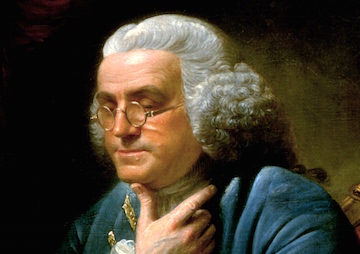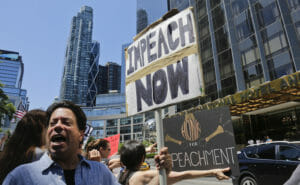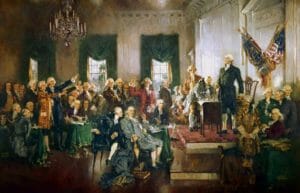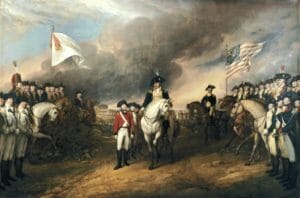Founding Fathers Had Warm Relationships With Female Friends
“Our nation’s first presidents had close, loving friendships with women—women who weren’t their wives or close relatives,” Cassandra Good, author of a book on the subject, writes at Smithsonian.com. Benjamin Franklin. (David Martin / The White House Historical Association)
Benjamin Franklin. (David Martin / The White House Historical Association)
“Our nation’s first presidents had close, loving friendships with women—women who weren’t their wives or close relatives,” Cassandra Good, author of “Founding Friendships: Friendships Between Men and Women in the Early American Republic,” a new book on the subject, writes at Smithsonian.com.
“Historians,” Good explains, “distinguish a friendship from a romance in the past through careful attention to the language men and women used. Of the many thousands of letters of the founders which have survived, small caches of correspondence with female friends survive. Their correspondence shows that the founding presidents were warm, loving and often lighthearted with their female friends.
“Americans in this period were prolific letterwriters, writing lengthy missives to friends and family from whom they might be separate for years at a time. Trips up and down the Eastern seaboard would take weeks. A trip across the Atlantic to London or Paris, months. But friends of the opposite sex faced special challenges when writing one another, because unrelated men and women were not supposed to correspond. When they did write one another, they had to worry that their expressions of affection would be misinterpreted—especially since letters were often passed around as public documents. Think about it as if your whole family and a few of your neighbors had access to your email password.
“As Benjamin Franklin told a female friend, ‘I know very well that the most innocent Expressions of warm Friendship, and even those of meer Civility and Complaisance, between Persons of different Sexes, are liable to be misinterpreted by suspicious Minds.’ Given that, men and women were careful about the wording of their letters, particularly the openings and closings. While John Adams opened letters to Abigail with ‘My dearest friend’ and signed off with lines like ‘yours most tenderly,’ his letters to his friend Mercy Otis Warren look quite different. Most opened with ‘Madam’ and closed more formally: ‘With the greatest Esteem and Respect, Madam, / I have the Honour to be, your Fr[“i”]e[n]d, & sert.’ ”
Continue reading here.
— Posted by Alexander Reed Kelly.
Your support matters…Independent journalism is under threat and overshadowed by heavily funded mainstream media.
You can help level the playing field. Become a member.
Your tax-deductible contribution keeps us digging beneath the headlines to give you thought-provoking, investigative reporting and analysis that unearths what's really happening- without compromise.
Give today to support our courageous, independent journalists.









You need to be a supporter to comment.
There are currently no responses to this article.
Be the first to respond.